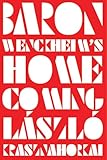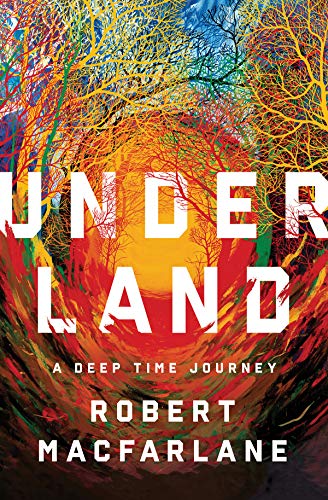In 1996, on my second day in Ukraine, a respected, local priest—Otets (Father) Ivan—invited me to his flat for lunch. Jet-lagged and overwhelmed, I went. I’d barely hung up my jacket when he thumbed open a bottle of Sovetskoye champagne with one hand and poured while snapping a chocolate bar into sections with the other. I was bewitched. He then dropped a chunk *bloop* into our shimmering flutes, handed me a glass and offered up this sotto voce nugget with a wink: “our girls love it this way.” Thus had begun my master-class in the finer points of Ukrainian corruption.
Which you may have heard of. The news reports don’t do it justice, of course. For Ukrainians rich or poor, it is as pervasive as it is maddening. Every sociocultural touchpoint bears its trace, from the obstetrics that open your eyes to the palliatives that close them corruption complicates the process. Register your kid in a school. Get a driver’s license. A dog license. A dentist’s license. Open a business. Close a business. Make a sale. Build a home. Pay your taxes. Finagle a liquified natural gas distribution contract or secure a plum date with the local priest for your wedding and it’s blat (pull), otkat (kickback), and khabarya (bribery) all the way down. It’s quid pro quo, who-ya-know, and pay-to-play.
But over these past five years Ukrainian corruption, both macro- and micro-, has met with some significant resistance. The unwashed are naming names. We have become a nation of whistleblowers. There are, finally, arrests.
Had we been listening, Big History would have long ago consoled us: Unless forestalled by terminal cultural collapse, the grubby venality, relentless emotional grind, fragile loyalties and ugly contempt for individual dignity that connote a pervasive culture of immiseration will not hold. Corruption—personal or systemic—is unsustainable indefinitely. Finding corruption, wherever it occurs, has never been the problem. In Ukraine, it took the blood of the young mixed with the memory of the old to confront it and to put a beginning to the end of the days of bullying dilettantism and petty, quotidian tyrannies. Lev, Igor, and Rudy simply showed up too late.
For my part, I was afforded a nice, soft landing in the bog of Ukrainian corruption. I had tutelage from that jazz impresario of scam—the abundant, amiable Otets Ivan. The embodiment of the Russian proverb: if you’re going to steal, steal a million. If you’re going to fuck, fuck the Tsaritsa.
A week before the end of my parish service in Ukraine, Ivan called me up, excited; he wanted to show me the galleys for a book he’d written. “Take a look”, he says. I turn a page, another, begin to read. Slowly the fog lifts. I was reading my own sermon. Turn a page. My essay. Turn a page. My lecture. Seven years of my work in print with only one alteration: Ivan had listed himself as the author. He hadn’t even bothered to change the anecdotes from my-cum-his youth growing up in the 1960s on the Pacific coast of Washington State. I hope it sold well; I was on fire in my pastoral writing. Two things I know about Otets Ivan: He possessed a genius-level capacity for corruption, and he was my first local friend. The latter is relevant to my reading because I lack Ivan’s gift for acquisitiveness, but I am not less corrupt. To address it I read.
That’s the long way around to saying that I’ve come to a point in my life, in my reading, where I seek out books that engage my need for redemption. In practical terms, a book—no matter how relentlessly hyped—that betrays a lack of breadth, experience, or feel for honest human encounter doesn’t interest me. I won’t be scammed. Fiction or non-fiction, if I get a whiff of manifesto, a hint of ideology, performative prose, cheap signaling, aversion to complexity or any of the other stultifying categories of sociological pablum that make for viral tweets, then you’ve lost me as a reader. I don’t need to be made any dumber than I am naturally. And I, like you, definitely don’t need to be made more susceptible to the predations of the truly sinister agents of corruption that are at work all around us.
In the end, I’m looking for love in the stories I read because I believe the Old Book is trustworthy in this: love shall cover a multitude of sins. Edify me, lift me up, restore me, help me atone, even provoke me, but talk to me as if I were the only person in the room. It’s what they called storgē in ancient Athens—longsuffering, dedicate, parental love. It’s uncommon among storytellers, a rare gift, and the surest antidote to corruption I know of. You’ll find it in each of the books below.
Underland by Robert Macfarlane
 I am a tree-climber. I became enamored of Macfarlane a dozen years back when he opened The Wild Places with a description of his need to climb “a tall grey-barked beech” in a wood outside London. In Underland, he descends to locales that my claustrophobia prevents me from following him except on paper. He takes us below the surface of the planet to the concealed geographies, sacred and ancient, that undergird our existence and link us to the depths of time. My book of the year, perhaps of next year, too.
I am a tree-climber. I became enamored of Macfarlane a dozen years back when he opened The Wild Places with a description of his need to climb “a tall grey-barked beech” in a wood outside London. In Underland, he descends to locales that my claustrophobia prevents me from following him except on paper. He takes us below the surface of the planet to the concealed geographies, sacred and ancient, that undergird our existence and link us to the depths of time. My book of the year, perhaps of next year, too.
Rock, Paper, Scissors by Maxim Osipov, translated by Boris Dralyuk, Alex Fleming, and Anne Marie Jackson
 The great appeal of the best Russian writers is their sneaky way of slipping hard-won philosophy into the story and doing it without being preachy. Perhaps that’s because it’s marked by an acceptance for our mutual predicament (essential to storgē), suffused with irony but bereft of contempt. Osipov’s short stories are brimming with it. Here’s a snippet: “He knew that all the cars passing by contained people who valued their lives no less than he valued his—their lives and the safety of their vehicles; and so they tended to be cautious, give warning, and not to despise themselves for their willingness to yield.” Think about that.
The great appeal of the best Russian writers is their sneaky way of slipping hard-won philosophy into the story and doing it without being preachy. Perhaps that’s because it’s marked by an acceptance for our mutual predicament (essential to storgē), suffused with irony but bereft of contempt. Osipov’s short stories are brimming with it. Here’s a snippet: “He knew that all the cars passing by contained people who valued their lives no less than he valued his—their lives and the safety of their vehicles; and so they tended to be cautious, give warning, and not to despise themselves for their willingness to yield.” Think about that.
The Girl from the Metropol Hotel by Ludmilla Petrushevskaya, translated by Anna Summers
 As preposterously original as her fiction is, this is Petrushevskaya at her spare, brutal best. This refreshingly brief memoir adds, at the very least, sobering perspective to current debates about “Cancel Culture”. At its most exhilarating it provides some toothy, deeply grounded counterpoint to the claim that there are no more heroes.
As preposterously original as her fiction is, this is Petrushevskaya at her spare, brutal best. This refreshingly brief memoir adds, at the very least, sobering perspective to current debates about “Cancel Culture”. At its most exhilarating it provides some toothy, deeply grounded counterpoint to the claim that there are no more heroes.
What Are We Doing Here? by Marilynne Robinson
 I swear, Marilynne Robinson steals all my ideas and then writes the hell out of them with intellectual rigor that’s as rare as it is outmoded in an increasingly vitiated culture. She is the anti-Tweet, the anti-meme, the anti-eyeroll GIF. Lectures, essays and, yep, sermons. Read her, get smarter, and feel your heart swell.
I swear, Marilynne Robinson steals all my ideas and then writes the hell out of them with intellectual rigor that’s as rare as it is outmoded in an increasingly vitiated culture. She is the anti-Tweet, the anti-meme, the anti-eyeroll GIF. Lectures, essays and, yep, sermons. Read her, get smarter, and feel your heart swell.
Self-Portrait in Black and White by Thomas Chatterton Williams
 An articulate, compassionate, and necessarily particular argument/memoir on the “fluidity of racial borders” and the idea that it is not the perception of race that gives rise to racism, but racism that gives rise to concepts of race. Williams delves into the abyss of corrupted human nature and emerges hopeful writing, for example: “…the situation is not zero-sum: We can simultaneously resist bigotry and imagine a society that has outgrown the identities it preys on. In fact, we have to.” Smart x3.
An articulate, compassionate, and necessarily particular argument/memoir on the “fluidity of racial borders” and the idea that it is not the perception of race that gives rise to racism, but racism that gives rise to concepts of race. Williams delves into the abyss of corrupted human nature and emerges hopeful writing, for example: “…the situation is not zero-sum: We can simultaneously resist bigotry and imagine a society that has outgrown the identities it preys on. In fact, we have to.” Smart x3.
Baron Wenckheim’s Homecoming by László Krasznahorkai, translated by Ottilie Mulzet
 Proviso: You will need to read the first three books in Krasznahorkai’s tetralogy—Satantango, Melancholy of Resistance, War & War—if you want to get this. What am I talking about? There’s nothing to get. Unless, that is, you’re interested in grasping the uncommon appeal of fake news, collective crisis of conscience, and cultural entropy. And all wrapped in Krasznahorkai’s prose both staggering and nonpareil, and dipped in wincingly dark humor sauce. Very funny. Very true. Very us.
Proviso: You will need to read the first three books in Krasznahorkai’s tetralogy—Satantango, Melancholy of Resistance, War & War—if you want to get this. What am I talking about? There’s nothing to get. Unless, that is, you’re interested in grasping the uncommon appeal of fake news, collective crisis of conscience, and cultural entropy. And all wrapped in Krasznahorkai’s prose both staggering and nonpareil, and dipped in wincingly dark humor sauce. Very funny. Very true. Very us.









